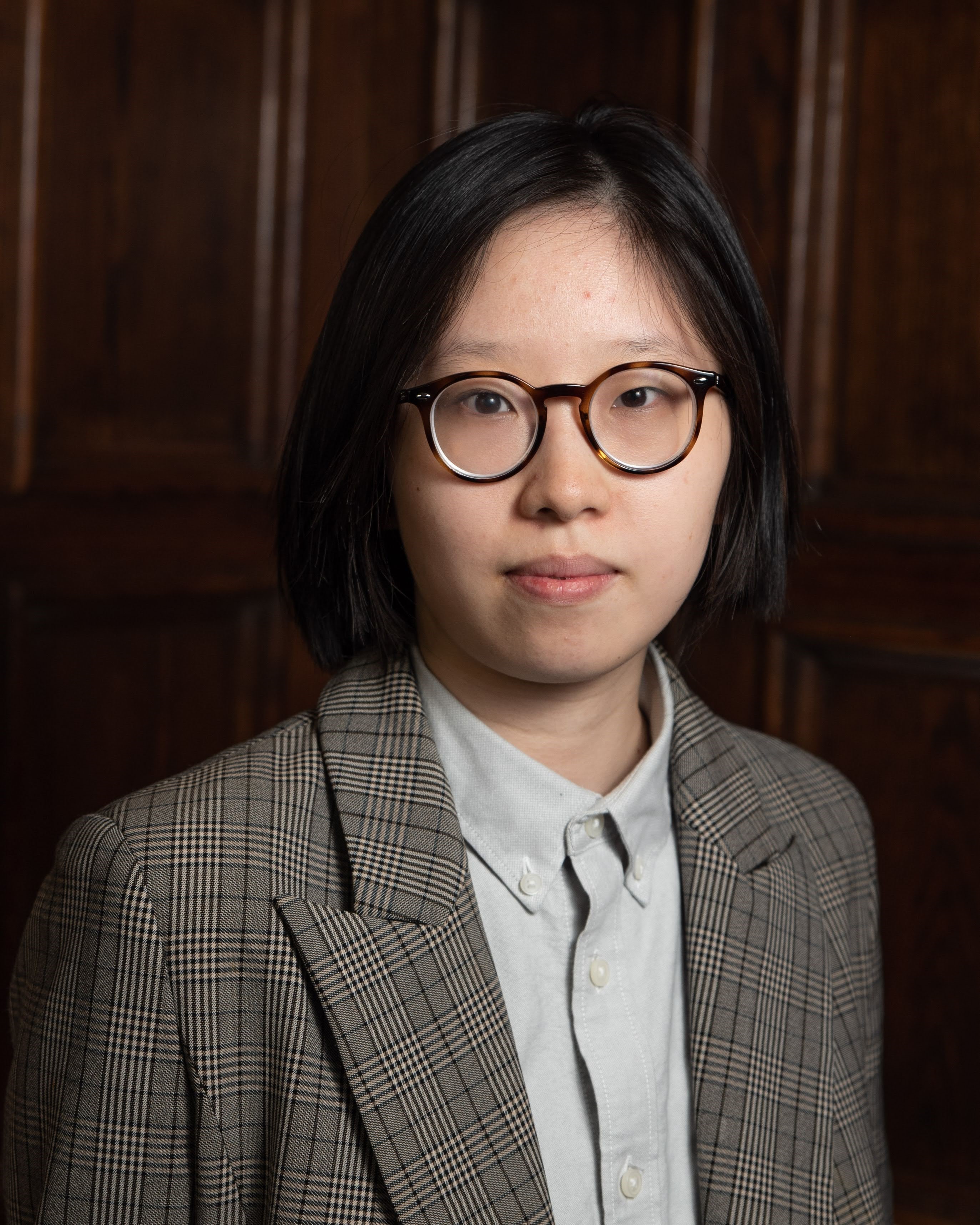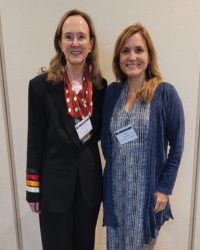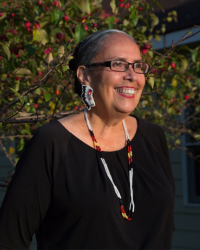2023 Featured Abstracts
Jordan A. Dyett, SUNY Albany
Using Photography as a Weapon: Preliminary Insights from a Photovoice Project with People Who Use Substances
 |
||
Individuals who use substances in the United States are subject to surveillance, coercion, and harm from both criminal and child welfare systems at alarming rates. The COVID-19 pandemic, which witnessed a surge in overdose-related deaths alongside punitive drug control policies, further underscored this troubling intersection. This harm is further compounded by racial, class-based, and gendered disparities. Despite being the experts of their own experience, individuals impacted by these systems are frequently silenced and marginalized in the realms of education, practice, and research.
To disrupt this harmful trajectory, this research adopts qualitative community-based participatory research (CBPR) methods, collaborating closely with a community of individuals with a history of substance use and lived experiences within criminal or child welfare systems. In partnership with this community, we developed, designed, and addressed research questions through qualitative interviews and employed an arts-based method known as photovoice. This presentation will showcase preliminary findings from our research and delve into strategies through which communities can actively resist carceral and punitive responses to substance use, while also embracing transformative healing practices.
Nicolas Gutierrez III, University of Southern California
No Person Shall Willfully Resist, Delay, or Obstruct: The Criminalization of Activists and Organizers Resisting Homeless Encampment Sweeps
 |
||
The City of Los Angeles is home to about 42,000 individuals experiencing homelessness, nearly 70% of whom are staying in places not meant for sleeping like vehicles and tents (LAHSA, 2022). City officials have long attempted to invisibilize homelessness through punitive measures, particularly anti-camping ordinances and encampment sweeps, that displace unsheltered individuals to then destroy their property—a homelessness encampment management strategy that remains one of the City’s most contentious practices. In 2021, the LA City Council voted to amend Los Angeles Municipal Code (L.A.M.C.) 41.18 to prohibit individuals from sitting, lying, sleeping, or placing personal property in public rights-of-way throughout most of the City. In recent years, the City has also increasingly funded the Sanitation Department’s CARE+ (Comprehensive Cleaning and Rapid Engagement) teams to clear noncompliant encampments within special enforcement zones. Proponents of these sweeps claim that they are done in the interest of public safety and health in addition to the well-being of encampment residents; however, research has found that the effects of punitive homelessness management practices often include physical loss, psychological harm, and social consequences (Herring et al., 2020; Welsh Carroll et al., 2023). Encampment sweeps across the nation have become a literal matter of life and death as unsheltered individuals have frozen to death after losing their blankets and makeshift shelters during a harsh winter in Kansas City (Spoerre & Stark, 2021); narrowly escaped the ravage of bulldozers set on flattening tents in Fresno (Speer, 2014); and been swept into a garbage truck in San Diego only to escape moments before the hydraulic compactor was activated (McDonald, 2018). In Los Angeles, an unsheltered man died after his heart medicine was thrown out during a city-sanctioned sweep (Powers, 2021).
Through individual and collective efforts, community members—housed and unhoused—have taken it upon themselves to resist the punitive nature and effects of sweeps. At the forefront of these efforts, the “Services Not Sweeps” coalition—consisting of over 35 community organizations—regularly organizes: cleanups to help residents distinguish between trash and personal belongings ahead of sweeps; sweep blockades to prevent city employees from displacing residents; sweep monitoring to ensure sanitation workers and police officers act in accordance with the law; and survival supplies distributions to replenish items discarded during sweeps. Additionally, activists and encampment residents publicly request city services, such as trash cans and routine pickups, without the displacement of residents and destruction of property. Through political advocacy, they also express concern regarding the presence of police at sweeps and call for the abolition of anti-homeless policing. City officials have taken notice of these grassroots acts of resistance. In addition to penalizing noncompliant encampments, L.A.M.C. 41.18 criminalizes resistance—placing even harsher penalties (i.e., a fine and/or imprisonment) for individuals who willfully resist, delay or obstruct a City employee from enforcing this section; this poses a new challenge for activists and organizers resisting encampment sweeps.
While previous research has demonstrated the negative impacts of criminalizing homelessness, we know little about how community members mobilize while navigating their own criminalization. Drawing from my master’s thesis (Gutierrez III, 2023), this paper will center and theorize the lived experiences of those directly affected by the City’s punitive approaches to homelessness and resistance using data from semi-structured interviews (n = 24) with activists, organizers, and encampment residents in Los Angeles. Through a combination of purposive and snowball sampling, I aim to identify information-rich cases that best illustrate the current state of Los Angeles’ homelessness crisis. Specifically, this paper will examine how variations in the enforcement of and experiences related to anti-resistance ordinances influence organizers’ decision-making and mobilization strategies. Preliminary data analyses suggest that some organizers perceive this subsection of L.A.M.C. 41.18 as a tool of intimidation weaponized by police to discourage neighbors from helping neighbors, while others characterize it as a pretext to target organizers of color. Consequently, some activists recount their inability to participate in sweep defenses due to open cases, and others describe adapting to this targeted enforcement by ensuring white male activists engage with police on behalf of the encampment community.
While these increasingly punitive elements are not limited to Los Angeles, the City represents a microcosm of our nation’s homelessness crisis and responses. Therefore, this paper aims to capture effective strategies for not only resisting harmful governmental actions but also sustaining life—enhancing grassroots efforts that address the rights, well-being, and other needs of encampment residents in Los Angeles and similar cities across the nation. This presentation will contextualize the findings within the current discourse on the nationwide homelessness crisis, criminalization of vulnerable populations, and police reform and abolition.
Keywords: homelessness, encampment sweeps, community mobilization, criminalization, policing, resistance to policing
Ann Jiang, The University of Chicago
Sexuality in Conflict: How Transnational Bisexuals Negotiate Moral Boundaries and Collective Identity amid Sexual Division in China
 |
In 21st Century China, LGBTQ became more visible thanks to the success of transnational LGBTQ movement. Internationally, gay and lesbian movement is making strides in marriage, rights, and recognition. At the same time, authoritarian suppression of LGBTQ political activism from the state heightened as part of the crackdown for cilvil society. China's society is going through urban and modern transformations that bring transnational ideas and traditional culture into conflict. When we think about it, LGBTQ as an analytic category consists of many subcategories that are lumped together for convenience but are different in their history, politics, or culture (Mucciaroni 2011; Murib and Brettschneider 2017; Smith 2011). Does everyone within the category of LGBTQ support each other happily under the rainbow?
My paper is motivated by the following questions. How do categories of sexualities conceptualize difference, build solidarity, or create division? My research situates in the intersection of social movement, LGBTQ politics, and authoritarian China. Social movement studies have revealed how the construction of in-group and out-group boundaries, consciousness, and negotiation essentialize collective identities in social movement that often advocate for particular ideals (Ghaziani and Baldassarri 2011; Ghaziani, Taylor, and Stone 2016; Snow, Soule, and Kriesi 2004), but little do we know about the intra-movement dynamics that shape the fight for those ideals. In recent years, scholars started to study internal conflict inside LGBTQ ((Pfeffer 2014; Sutherland 2021; Valentine 2007; Ward 2008), and my work extends their effort by studying the experience of bisexuals and reveals larger political dynamics in contemporary China.
When we turn to the case of LGBTQ movement, Gamson (1997) shows how the creation of collective identity in gay and lesbian politics simultaneously lead to exclusion despite proclaimed goal of inclusion. As a result, queer sociologists have started to advocate for a post-gay study to critically examine homonormativity and relations within and between sexuality categories (Connell 2023; Gamson 1995; Gamson and Moon 2004; Mathers, Sumerau, and Cragun 2018) through collective identity (Ghaziani 2011; Proctor 2022).
On a geographic note, vast gender and sexuality research is done in the Anglophone liberal democracies (Bao 2018; Chan 2021; Jung 2021; Liu 2010), but my focus on transnational China in the 21st Century incorporates the distinct dilemma between authoritarian control and the public sphere (Engebretsen, Schroeder, and Bao 2015; Lei 2018; Long 2018) that complicate conventional understanding of queer politics. On a social level, tightened authoritarian control and push for heterosexual reproduction clash with the fresh emergence of commercial economy, urbanization, transnational cultural exchange, and cilvil society (Chiang 2018; Hildebrandt 2012; Ho et al. 2018; Kam 2013; Liu 2020; Sun and Guo 2014) . Tightened authoritarian governance in China and increasing LGBTQ visibility in transnational world intensified the clash between, on the one hand—ancient history of willful negligence and lifting of PRC’s pathological classification on homosexuality—and on the other hand—the emergence of cilvil society, domestic ideals of filial piety and heterosexual reproduction, and young generation’s aspiration for individual fulfillment.
Unsurprisingly, conventional understanding of unequal power dynamics inside LGBTQ informs us of bi-negativity, cisnormativity, compulsory sexuality, and so forth. In this paper, however, I employ Currah’s methodology (2022) where I try not to assume phobia as the universal and sufficient explanation for anti-LGBTQ violence. Instead, I study how people perceive difference, construct boundaries, and form collective identities in everyday experience that reveal the process of intergroup relations that characterize norms and practices in and out of LGBTQ.
In this project, I address the gap in how intra-movement tension emerge, decline, and transform through the case of LGBTQ movement to understand how internal conflict across category members impact solidarity and division in identity politics. Naturally, my case could be extended to other identity-based categories and the micro-politics of everyday life (Brubaker 2004, 2016a, 2016b). My paper contributes to methodological approaches in the study of gender and sexuality by highlighting that gender-and sexuality-based inequalities cannot be properly understood apart from the collective process of gender and sexuality category boundary and identity making. My work also examines how the Chinese society respond to the fast-changing authoritarian landscape that governs individual freedom through a transnational methodological framework that considers processes of globalization and transnational knowledge production.
To address these gaps, I examine how collective identity emerge, collide, and contest among categories of gender and sexuality. To do so, I analyze the everyday experience of bisexuals from China, especially how transnational Chinese bisexuals negotiate moral boundaries and collective identity during contentious sexual division between multiple categories. The case of bisexuality represents an ambiguous position in LGBTQ categories, because it is often lumped with LGBTQ, challenges heteronormativity, yet faces rejection from both heterosexual and queer communities (Egan 2012; Hayfield 2021; Murib and Brettschneider 2017; Ochs 1996). I operationalize bisexuality as self-identification that one can be romantically or sexually attracted to more than one gender, so the umbrella term subsumes common categories like pansexual and biromantic asexual. I ask: What’s the context that activates the boundaries of sexualities? How does moral evaluations for different categories emerge? How do bisexuals perceive, construct, and contest sexual boundaries and collective identity?
My work carries important implications for larger questions. What does queer politics tell us about the politics of difference in race, gender, class, etc? How is queer politics in China similar or different from the US and what does that teach us about the transferability of universal ideals of human rights? How does my study disentangle the concept of LGBTQ and what are the implications for gender & sexuality studies empirically, theoretically, and methodologically?
To answer these questions, I conduct semi-structured in-depth interviews and online content analysis. Prior to data collection, I familiarized with existing literature on bisexual studies and the sociology of gender and sexuality. These preliminary literature review helped me form critical assumptions and working knowledge about the hidden population I have not personally interacted with. In data collection, I found rich data that I organized through different boundary processes—perceiving moral boundaries, negotiating symbolic difference, and constructing collective identity. While my data points to particular attitudes in these processes, I decided to keep it open for new attitudes to emerge in the future that nevertheless would subsume under these general processes.
My preliminary findings are organized by theoretical processes on identity formation and empirical data. In the midst of divisions in queer politics, they perceive symbolic boundaries in gender and sexuality, respond to symbolic exclusion, negotiate their perceived and actual difference through new boundary-making strategies, creative disclosure, and experienced judgment, and created new forms of collective identity. I reveal the dynamic process where moral boundaries and sexual politics are created, contested, rejected, and dissolved. Even though I didn’t consider my participants a subset of LGBTQ movement, I found social movement theories explain the success of homonormative consciousness (Connell 2023; Gamson 1997) that unexpectedly lead to new forms of marginalization toward other members of LGBTQ. As a result, boundary-making and collective identity not only exist between heterosexual/homosexual, but also play a role in the variety of categories in sexualities. In this sense, my project reformulated the structural factors, group actors, and cultural consequences that shape transnational queer politics, and more broadly the politics of diversity.
Bibliography
Bao, Hongwei. 2018. Queer Comrades: Gay Identity and Tongzhi Activism in Postsocialist China. Copenhagen: NIAS press.
Brubaker, Rogers. 2004. Ethnicity without Groups. Cambridge, Mass: Harvard University Press.
Brubaker, Rogers. 2016a. “The Dolezal Affair: Race, Gender, and the Micropolitics of Identity.” Ethnic and Racial Studies 39(3):414–48. doi: 10.1080/01419870.2015.1084430.
Brubaker, Rogers. 2016b. Trans: Gender and Race in an Age of Unsettled Identities. Princeton: Princeton University Press.
Chan, Lik Sam. 2021. The Politics of Dating Apps: Gender, Sexuality, and Emergent Publics in Urban China. Cambridge, Massachusetts: The MIT Press.
Chiang, Howard, ed. 2018. Sexuality in China: Histories of Power and Pleasure. Seattle: University of Washington Press.
Connell, Cati. 2023. “Introduction: THE DAWNING OF A KINDER, GENTLER US MILITARY.” Pp. 1–24 in A Few Good Gays, The Gendered Compromises behind Military Inclusion. University of California Press.
Currah, Paisley. 2022. Sex Is as Sex Does: Governing Transgender Identity. New York: New York University Press.
Egan, Patrick J. 2012. “Group Cohesion without Group Mobilization: The Case of Lesbians, Gays and Bisexuals.” British Journal of Political Science 42(3):597–616. doi: 10.1017/S0007123411000500.
Engebretsen, Elisabeth L., William F. Schroeder, and Hong wei Bao. 2015. Queer-Tongzhi China: New Perspectives on Research, Activism and Media Cultures. Copenhagen: NIAS press.
Gamson, Joshua. 1995. “Must Identity Movements Self-Destruct? A Queer Dilemma.” Social Problems 42(3):390–407. doi: 10.2307/3096854.
Gamson, Joshua. 1997. “Messages of Exclusion: Gender, Movements, and Symbolic Boundaries.” Gender and Society 11(2):178–99.
Gamson, Joshua, and Dawne Moon. 2004. “The Sociology of Sexualities: Queer and Beyond.” Annual Review of Sociology 30(1):47–64. doi: 10.1146/annurev.soc.30.012703.110522.
Ghaziani, Amin. 2011. “Post-Gay Collective Identity Construction.” Social Problems 58(1):99–125. doi: 10.1525/sp.2011.58.1.99.
Ghaziani, Amin, and Delia Baldassarri. 2011. “Cultural Anchors and the Organization of Differences: A Multi-Method Analysis of LGBT Marches on Washington.” American Sociological Review 76(2):179–206. doi: 10.1177/0003122411401252.
Ghaziani, Amin, Verta Taylor, and Amy Stone. 2016. “Cycles of Sameness and Difference in LGBT Social Movements.” Annual Review of Sociology 42(1):165–83. doi: 10.1146/annurev-soc-073014-112352.
Hayfield, Nikki. 2021. Bisexual and Pansexual Identities: Exploring and Challenging Invisibility and Invalidation. Abingdon New York (N.Y.): Routledge, Taylor & Francis group.
Hildebrandt, Timothy. 2012. “Development and Division: The Effect of Transnational Linkages and Local Politics on LGBT Activism in China.” Journal of Contemporary China 21(77):845–62. doi: 10.1080/10670564.2012.684967.
Ho, Petula Sik Ying, Stevi Jackson, Siyang Cao, and Chi Kwok. 2018. “Sex With Chinese Characteristics: Sexuality Research in/on 21st-Century China.” The Journal of Sex Research 55(4–5):486–521. doi: 10.1080/00224499.2018.1437593.
Jung, Minwoo. 2021. “Imagining Sovereign Futures: The Marriage Equality Movement in Taiwan.” Social Movement Studies 1–17. doi: 10.1080/14742837.2021.2010528.
Kam, Lucetta Yip Lo. 2013. Shanghai Lalas: Female Tongzhi Communities and Politics in Urban China. Hong Kong University Press.
Lei, Ya-Wen. 2018. The Contentious Public Sphere: Law, Media, and Authoritarian Rule in China. Princeton: Princeton University Press.
Liu, Chuncheng. 2020. “‘Red Is Not the Only Color of a Rainbow’: The Making and Resistance of the ‘MSM’ Subject among Gay Men in China.” Social Science & Medicine 252:112947. doi: 10.1016/j.socscimed.2020.112947.
Liu, P. 2010. “Why Does Queer Theory Need China?” Positions: East Asia Cultures Critique 18(2):291–320. doi: 10.1215/10679847-2010-002.
Long, Yan. 2018. “The Contradictory Impact of Transnational AIDS Institutions on State Repression in China, 1989–2013.” American Journal of Sociology 124(2):309–66. doi: 10.1086/698466.
Mathers, Lain A. B., J. E. Sumerau, and Ryan T. Cragun. 2018. “The Limits of Homonormativity: Constructions of Bisexual and Transgender People in the Post-Gay Era.” Sociological Perspectives 61(6):934–52. doi: 10.1177/0731121417753370.
Mucciaroni, Gary. 2011. “The Study of LGBT Politics and Its Contributions to Political Science.” PS: Political Science and Politics 44(1):17–21.
Murib, Zein, and Marla Brettschneider. 2017. “Rethinking GLBT as a Political Category in US Politics.” LGBTQ Politics: A Critical Reader 14–33.
Ochs, Robyn. 1996. “Biphobia: It Goes More than Two Ways.” Pp. 217–39 in Bisexuality: The psychology and politics of an invisible minority. Thousand Oaks, CA, US: Sage Publications, Inc.
Pfeffer, Carla A. 2014. “‘I Don’t Like Passing as a Straight Woman’: Queer Negotiations of Identity and Social Group Membership.” American Journal of Sociology 120(1):1–44. doi: 10.1086/677197.
Proctor, Andrew. 2022. “Coming out to Vote: The Construction of a Lesbian and Gay Electoral Constituency in the United States.” American Political Science Review 116(3):777–90. doi: 10.1017/S0003055421001465.
Smith, Charles Anthony. 2011. “Gay, Straight, or Questioning? Sexuality and Political Science.” PS: Political Science & Politics 44(01):35–38. doi: 10.1017/S1049096510001824.
Snow, David A., Sarah Anne Soule, and Hanspeter Kriesi, eds. 2004. The Blackwell Companion to Social Movements 1 Edition. Malden, MA: Blackwell Pub.
Sun, Wanning, and Yingjie Guo, eds. 2014. Unequal China: The Political Economy and Cultural Politics of Inequality. First issued in paperback. London: Routledge.
Sutherland, David Kyle. 2021. “‘Trans Enough’: Examining the Boundaries of Transgender-Identity Membership.” Social Problems spab031. doi: 10.1093/socpro/spab031.
Valentine, David. 2007. Imagining Transgender: An Ethnography of a Category. Durham: Duke University Press.
Ward, Elizabeth Jane. 2008. Respectably Queer: Diversity Culture in LGBT Activist Organizations. Nashville: Vanderbilt University Press.
Seth Kahn, West Chester University of Pennsylvania
We Are Not Walmart: Contingent Academic Work and the ‘Walmartization’ of Higher Education
 |
||
Referring to increasingly precarious/casualized US higher education as “Walmartization” serves as a shorthand for low wages, poor working conditions, declining quality, and a general deprofessionalization of our institutions. Invoking Walmart as a metaphor for abusive employment practices is understandable, but a closer examination of both Walmart’s and contingent faculty’s working conditions/employment policies suggest that the metaphor is problematic and sometimes unhelpful as a result. Using Reich and Bearman’s Working for Respect: Community and Change at Walmart as a map, I identify aspects of contingent academic working conditions that often draw the “Walmart” comparison; assess the reasonability of those claims; and consider the consequences of the metaphor for workers and labor organizers. While resonances are obvious, the differences should be tool. The goal is not to tone-police faculty for using the metaphor, but to understand its limits and dangers. In simplest terms, making Walmart the avatar for degraded, deprofessionalized working conditions reinforces academics’ stereotypical sense of class superiority, thus complicating (at best) efforts at building worker solidarity across employment sectors.
Alan Santinele Martino, University of Calgary, Ann Fudge Schormans, McMaster University, Arielle Perrotta and Brenna McGillion, University of Calgary
Can We Be Feminists Too? An Exploratory Study on Women Labelled/With Intellectual Disabilities and Their Views on Feminism(s)
Historically, the intersection of disability has been overlooked by the feminist agenda. For many women, disability is part of how they experience and understand their lives. When we account for the relationship and interactions between the intersections of gender and disability, it is possible to gain more comprehensive understandings of how women labeled/with intellectual disabilities experience the world. In the spirit of this idea, to fully understand how women labeled/with intellectual disabilities relate to and understand feminism, we explored their views regarding feminism and the social issues that are important to them. Building on feminist disability studies theories, the purpose of this exploratory study is to learn about how women with/labeled intellectual disabilities experience and understand feminism. Drawing on semi-structured interviews with women with/labeled intellectual disabilities in Alberta and Ontario, Canada, our preliminary findings indicate that women with disabilities are not fully aware of the concept of feminism. In multiple cases, participants asked caregivers or requested to use technology to define the concept of feminism. While some participants could not define feminism, they could talk about how they demonstrated feminism in their everyday lives. Some examples of practicing feminism discussed by participants included (but not limited to) caring for loved ones and managing inequalities experienced in the workforce. These preliminary findings raise interesting questions about women with/labelled with intellectual disabilities sense of belonging in feminist movements.
 |
 |
 |
|
| Alan Santinele Martino | Ann Fudge Schormans | Arielle Perrotta |
Donalee Unal, Penn State University, Linda Houser, Salisbury University and Sandy White Hawk, First Nations Repatriation Institute
Native Voices and Sovereignty
Background and Purpose: When European explorers arrived in what is now called North America, Indigenous peoples comprised sovereign nations and
had highly developed systems of governance. Recognizing this, arriving Europeans initially treated Native affairs as a relationship between themselves and tribal nations, using European law as one means of colonization (Richotte, 2020). From then until now, Native people have continuously worked to maintain self-government and federal government recognition of their sovereignty (Ford, 2010).
Against a backdrop that includes both a lack of knowledge about Native people in social work (CSWE, 2007), as well as a tendency for Native voices to be omitted from social work research (Mihesuah, 1998), the purpose of this study was to convey contributions Native people are making in their communities to preserve their tribal nations and their cultures while reaffirming tribal sovereignty.
Methods: This qualitative study was grounded in Indigenous methodology, used along with a narrative method of inquiry, conversational interviewing, and thematic analysis. The term Native Knowledge Keeper is used throughout this work to refer to a Native individual who uses their Western knowledge combined with their Indigenous knowledge to reaffirm tribal sovereignty. Cidro et al. (2020) defined Knowledge Keepers as “those Indigenous peoples recognized in their communities for distinctive cultural knowledge and maintenance of associated traditions” (p. 340). Research questions included, “What stories does a Native Knowledge Keeper tell about their community?” and “In what ways, if any, do their focus and their goals fit within a framework of cultural preservation and/or tribal sovereignty?”
Results: Participants consisted of eight women and four men. While all participants were enrolled members of federally recognized tribes residing in the United States, they were from diverse tribal nations. All 12 participants shared similarities that they attributed to their experiences with living and working on and off a reservation, education, Native self-identification, and working predominantly with non-Natives throughout their lives.
Using thematic analysis, we generated an overarching theme and subthemes that together illustrate how Native people have found ways to live in a Western colonized world while at the same time preserving their culture and reaffirming tribal sovereignty. One dominant theme and two subthemes emerged. The overarching theme was Decolonization. The subthemes were: 1) Knowledge of Culture, and 2) Knowledge of Survival.
Conclusions and Implications: Hearing Native voices can assist social workers in developing an enriched and expanded understanding so that they may work effectively with this community as allies. Also, social workers can gain multifaceted knowledge of what Native people have had to endure and continue to endure due to colonization when life-experience stories are understood within a framework of federal government legal, educational, and health policies. Understanding that the disparities that exist among Natives populations are often the result of societal, economic, and political factors rather than individual behavior and choice, can be used to inform social work education, practice, and policy.
 |
 |
 |
|
Donalee Unal (Left) |
Linda Houser |
Sandy White Hawk |
